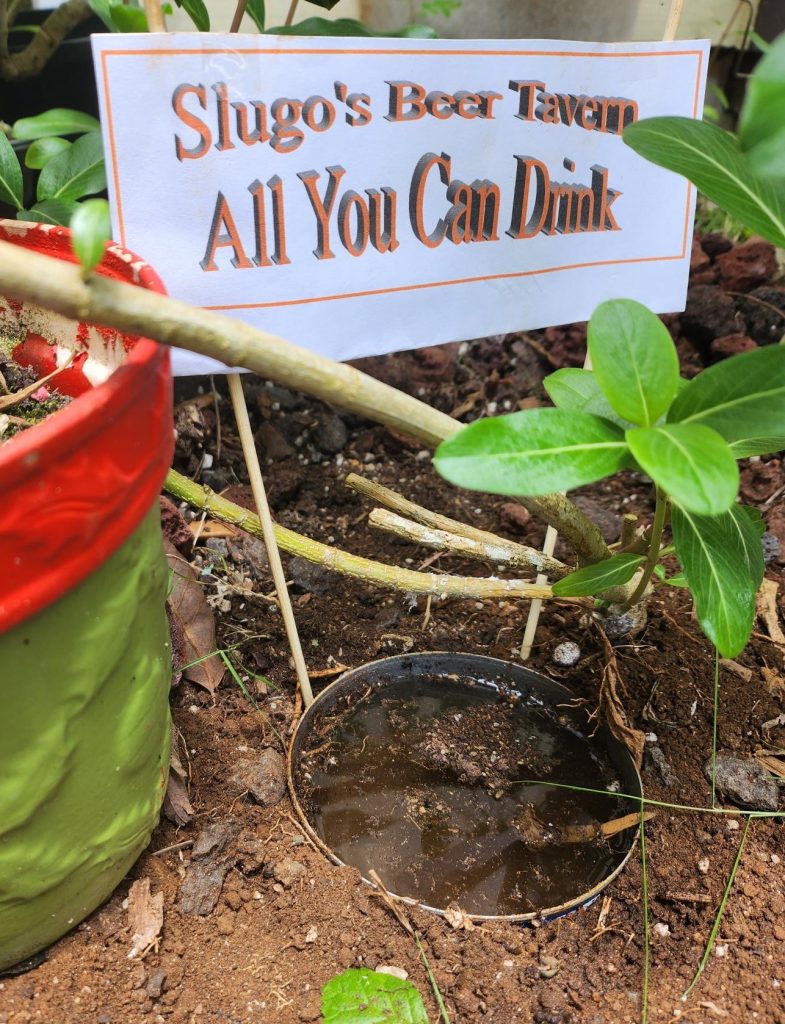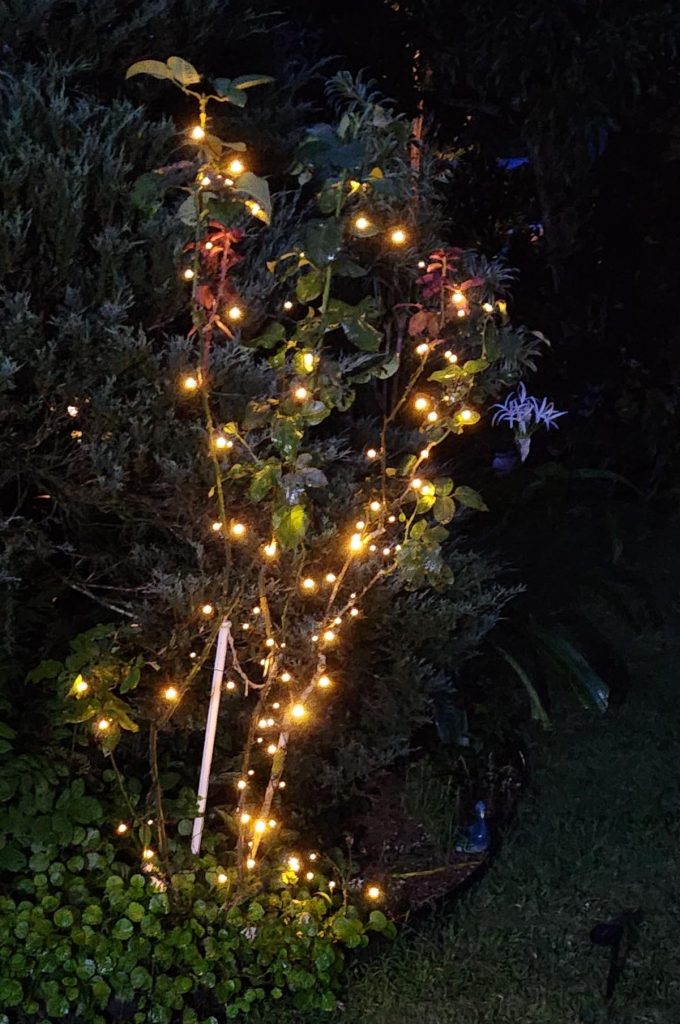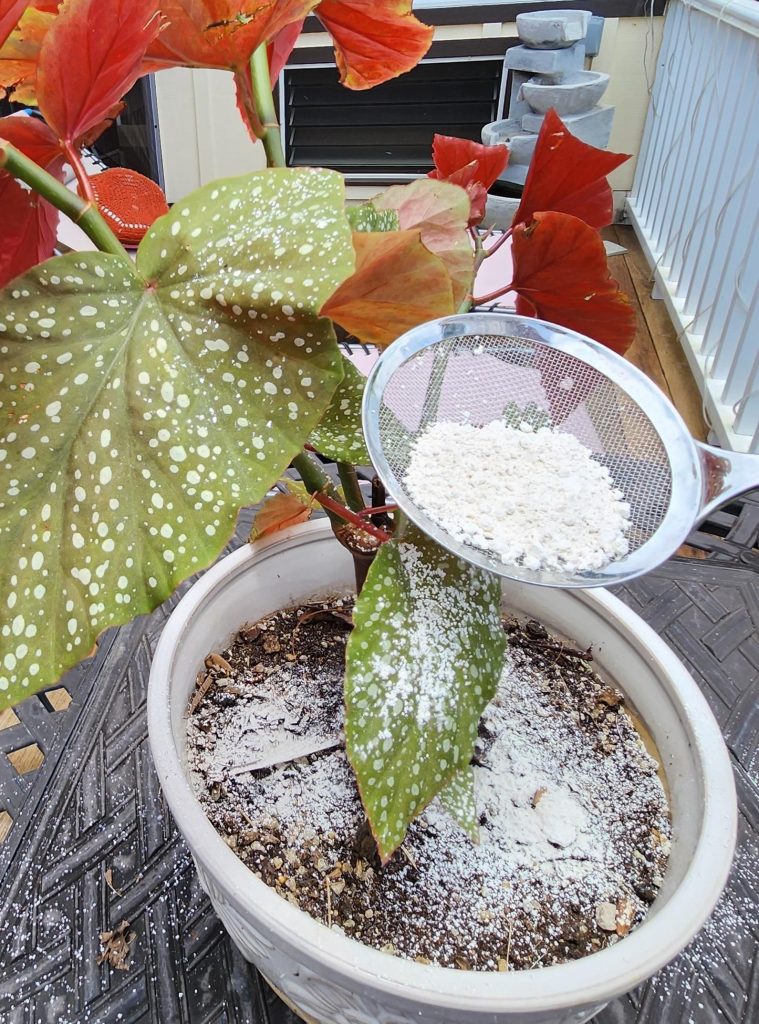Deprecated: stripslashes(): Passing null to parameter #1 ($string) of type string is deprecated in /mnt/efs/html/wp-content/plugins/template-scripts/src/AuthorBios/Frontend.php on line 129
Gardening on the Garden Isle: Are you smarter than a rose beetle? Can you outrun a snail?

I thought I was behaving responsibly, washing the car without being asked. My mother came roaring out the front door as if she had just found a rattlesnake in the laundry basket.
“What are you doing?” she asked.
I thought it was obvious.
“Well, stop right this minute!” She shouted. “You know that the family picnic is tomorrow. If you wash the car, it will rain cats and dogs. So, stop!”
I did as I was told, thinking: “Adults! You can’t live with them, and can’t get supper without them.”
I don’t remember if it rained, but you may wonder what this has to do with gardening. Many gardeners are like my mother, holding strange superstitions. The problem is that superstitions and scientific methods get mixed together as if both have the same effectiveness.
I don’t know if planting root crops by the dark of the moon is best, or garden gnomes bring good luck to my garden, or talking to the bees encourages them to visit my garden. Still, I cling to many of the age-old superstitions. As far as I know, none of them do any harm until superstitions become the main guide for gardening.
As a Master Gardener, I share research-based information. Universities are not the only entity that conducts research. There is also what I call anecdotal research. It is information that has not been subjected to the rigors of empirical testing, but are the reports from thousands of gardeners, collected over many decades.
Horticultural researchers publish articles that adhere to standards of academic writing. The focus often is on commercial farming. Applying five pounds of fertilizer per acre doesn’t translate well to a small home garden plot.
There are many articles on the Internet that appear to be based upon empirical, scientific research. However, not all have been peer reviewed by experts for accuracy. Beware: The Internet is rife with people with some gardening ideas that sound compelling but can damage your plants. When in doubt, follow the science.
I am going to share four anecdotal techniques. Some of these techniques are supported by scientific literature. Others are only found in coffee shops where gardeners swap gardening stories about what works for them. The following are techniques shared by local gardeners. I have found them effective for controlling chewing garden pests. None of these methods use harmful chemicals, nor will they harm you or your plants.
The chewing insects that I encounter most frequently in my yard are beetles, slugs, snails, ants and caterpillars. Not every technique works on every pest, but you will have four options from which to choose.

Chinese Rose Beetle: It is a scourge that gets up when I am calling it a day. While I have supper and watch a little television, the rose beetle is busy eating the leaves of my plants. You will know it was the rose beetle because the leaves will look like a lace doily. You could use chemicals, but that is not necessary. Rose beetles are like vampires, they don’t like the light.
I don’t have any outdoor power for my yard, so I rely on solar lights. I use two different types. The first is the inexpensive walkway light. I place one or two around the plants where the beetles are feeding. The lights come on at sunset and the beetles go back to bed. The second is a solar string light. These lightweight LED strings can be wrapped around the entire plant. This is especially effective for taller plants. It is also looks festive. The drawback to solar lights is that on cloudy days, the batteries don’t fully charge and don’t last all night.
With the worry over rat lung disease, I absolutely do not want slugs feeding on my garden plants. There are many products that control slugs, but many use harsh chemicals. I don’t use anything on my edibles that may harm me.
What I do instead is invite the slugs over for a beer. I open several, “Free, All You Can Drink, Slugo Taverns” using empty tuna cans. I bury the tuna can so that the top edge of the can is even with the surrounding soil. I fill each with beer. If you don’t have beer, fill the can with water and add a package of yeast. The slugs love beer. Well, actually they love the yeast in the beer. As for me, it is all the vitamin B found in yeast that I like. Beer is just the most convenient way to get it. Slugs love the yeast so much that in the morning, I find the party slugs floating in the brew.
African snail: It has a voracious appetite. If a herd of them attacks your garden while you sleep, you may only have stems in the morning. Like slugs, there are many chemicals that control snails, and for the same reason, I don’t use them.

I have found that snails don’t like copper. When the snails try to cross copper, it apparently has the same effect as a person chewing on a piece of tinfoil. It is distinctly unpleasant. Unfortunately, I was not able to find any conductive copper foil tape locally and had to order it.
The great thing about foil tape is that it can be wrapped around the stem of the plant. A quick wrap of copper foil around the stem of pepper, eggplant or tomato plants protects the entire plant from snails and slugs. It also works well to wrap it around garden pots. Neither snails nor slugs will cross the copper foil. I recommend that you use at least 1” and preferably 2” copper foil to prevent large snails and slugs from arching over the top of it.
When I find slugs or snails lollygagging in my garden, I have a special treat for them. I keep a glass jar with 2 ounces of table salt mixed with 12 ounces of water. Salt is deadly to slugs and snails. I never touch slugs or snails with my bare hands. I use something to lift and carry them to the salt-water spa, and drop them in. When the jar is full, dump it on gravel or weeds.

Diatomaceous earth, which is fossilized algae, is an effective product that controls insects. When an insect contacts the fine powder of Diatomaceous earth, its abrasive nature is like walking through a field of broken glass. The particles not only cut into the insect’s outer layer, but the particles also stick to them and dissolve their protective wax coating. The result is that the insect dehydrates and usually dies. It is especially effective against hard-shelled insects such as beetles and cockroaches as well as ants, slugs and snails.
Diatomaceous earth comes in two grades, one of which is food grade. It is a little more expensive, but if you want, you can mix it with water and drink it. I don’t recommend this unless you find out a lot more about Diatomaceous earth before drinking it with your morning toast.
The easiest way to apply Diatomaceous earth is to sprinkle it on the soil around the plants and on the leaves. There are a couple of things that you need to know about Diatomaceous. First, it is indiscriminate. It kills both harmful and beneficial insects. Second, once it gets wet, it is no longer effective. Third, it is a fine powder. Wear a mask when applying it to prevent inhaling it.
With all these disadvantages, why use Diatomaceous earth? If all the pests only lived outdoors, I probably wouldn’t be recommending it. Because it won’t hurt the kids, the pets or me, I use it to protect my house plants and outdoor potted plants. In the house, ants are usually the only real pest, but they are annoying. A sprinkle or two of Diatomaceous earth around the plant usually clears my ant problem quickly.
Diatomaceous earth is also effective for controlling cockroaches. In the kitchen, sprinkle a thin layer of Diatomaceous earth along the edge of drawers, shelves and cabinets. It isn’t fast, but it nearly eliminates roaches and ants from the kitchen.
My Aunt Agatha, who could find fault with the cleanliness of an operating room, visited us several years back. She wrinkled her nose and made several pointed comments about the deplorable condition of the kitchen. She swept in like Hurricane Iniki and wiped up every last grain of Diatomaceous earth. A couple days later, she grabbed me by the ear and dragged me into kitchen where she informed me that I had an ant problem. I nodded in agreement and mumbled, “Yes, Aunt Agatha, you are correct as always. I do have an aunt problem.”
Editor’s Note: Every other week, Big Island Now will feature a guest gardening column by Tom Timmons. He is a certified Master Gardener respected for his gardening experience, but his views are not necessarily those of the University of Hawai‘i.
Other gardening columns by Tom Timmons:
Sponsored Content
Notice: Function the_widget was called incorrectly. Widgets need to be registered using
register_widget(), before they can be displayed. Please see Debugging in WordPress for more information. (This message was added in version 4.9.0.) in /mnt/efs/html/wp-includes/functions.php on line 6114




